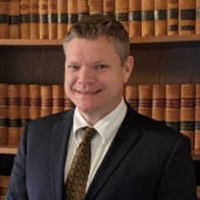Hillman Juvenile Law Lawyer, Minnesota
Not enough matches for Hillman Juvenile Law lawyer.
Below are all Hillman Criminal lawyers.
Edward R Shaw
✓ VERIFIEDThe Law Office of Attorney Edward R. Shaw is located in Brainerd, Minnesota and has been serving the Brainerd Lakes Area and surrounding counties with... (more)
Allen J. Peterson
✓ VERIFIEDMinnesota Native Allen J. Peterson is a 2017 graduate of the University of St. Thomas – School of Law. Allen was born September 24, 1991 in Dakota C... (more)
Blake D. Lubinus
✓ VERIFIEDBorn in South Dakota, raised in Iowa, and now practicing law in Minnesota, Blake is the very definition of a Midwestern lawyer. He attended the Univer... (more)
Michael A. Bryant
✓ VERIFIEDOur experienced personal injury lawyers regularly represent clients suffering from minor, serious, and catastrophic injuries. We have extensive experi... (more)
John Timothy Lund
FREE CONSULTATION
CONTACT




